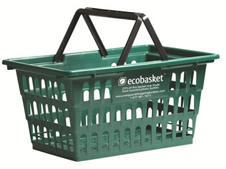New technology broadens what's recyclable, saves energy
 A plastics recycling business believes that its capacity to match the price of virgin grade resins for less commonly reused plastics will yield considerable energy savings and create opportunities for greener manufacturing.
A plastics recycling business believes that its capacity to match the price of virgin grade resins for less commonly reused plastics will yield considerable energy savings and create opportunities for greener manufacturing.NextLife, which is based in Boca Raton, Florida, is using proprietary technology to process 100% post consumer recycled plastics from less commonly recycled content into a consistent resin product. The resin is also approved for food contact.
“Previously, the recycling industry has lacked technological sophistication and recyclers weren’t able to deliver reliable, predictable and repeatable recycled resin every time,” a spokesperson said.
A more consistent resin changes the applications that are utilizing recycled plastics - “from less technical and aesthetic applications such as decking and park benches to consumer products and food contact packaging,” the spokesperson added.
Some of NextLife’s customers include Cascades, and Schick and food services supplier Havi Global Solutions (a Coke and McDonalds vendor). NextLife entered the food service market last month. If its business grows, the company estimates the following energy savings at its full capacity:
- Approximately 550,000 barrels of oil
- Approximately 360 million kw hours of electricity
- Greenhouse gas emissions equivalent to 25,000 cars
- The energy equivalent of nearly 28 million gallons of gasoline
A quick Googling turned up a number of other businesses that exist in this niche. Some of those are Whole Foods Markets, Styromelt, and Keller Products.
In the future, you might be able to buy a Tupperware container sourced from recycled polypropylene. NextLife argues that participation in local recycling programs might increase as people see the fruits of their efforts in day-to-day life.
Having recycling infrastructure for a broader range of plastics can only be described as a good thing. One of the top reasons why people don’t participate is that they don’t know what’s recyclable.
You can return to the main Market News page, or press the Back button on your browser.

